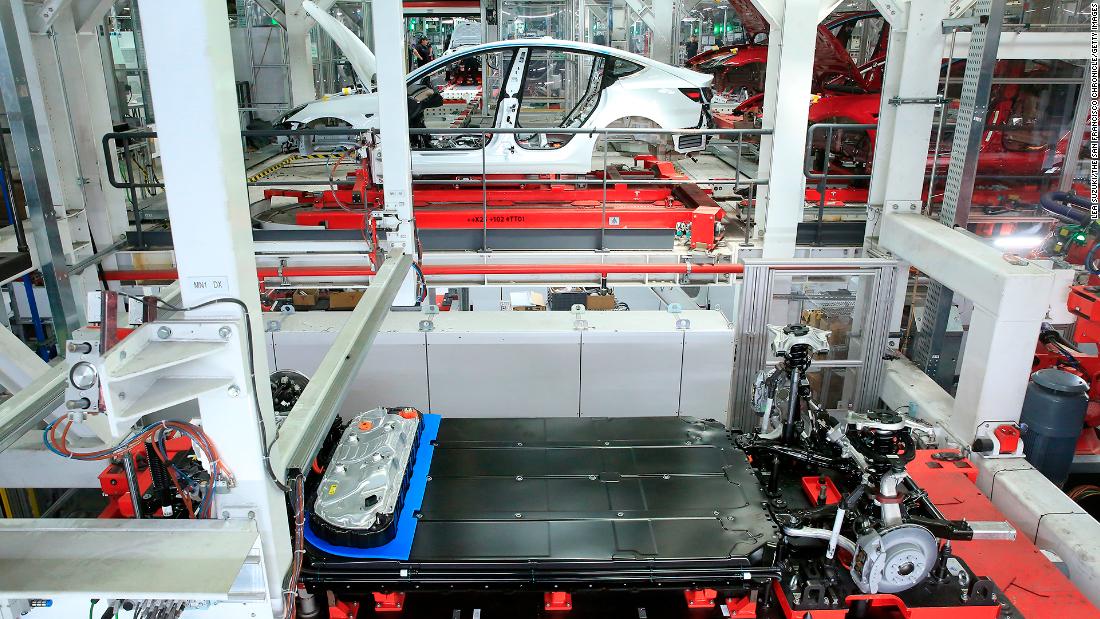
Electric vehicle proponents say the technology is an environmental good. The vehicles have a smaller lifetime carbon footprint than traditional vehicles, unless they last only a few years. Electric vehicles have fewer emissions as there’s no tailpipe, leaving only brake pad discharge and tire wear. Electric vehicles also lessen the need for fossil fuels like gas.
But electric vehicle batteries rely on metals that are mined, like lithium, nickel, cobalt, copper and graphite. Mining in the US is often associated with its negative environmental impacts. The battery metals experts say the negatives are a tradeoff we must accept for a greater environmental good. They argue that the US has better mining standards than some foreign countries, so there are global environmental benefits of mining at home.
The Biden administration has largely avoided discussion of mining and its significance to electric vehicles. Biden made a brief reference to “metallurgy” in last year’s State of the Union, describing it as a job of the future.
A White House
report from June 2021 called for resilient supply chains and acknowledged the security risk of the country’s shortcomings on batteries.
“Innovations essential to military preparedness—like highly specialized lithium-ion batteries—require an ecosystem of innovation, skills, and production facilities that the United States currently lacks,” the authors wrote.
Howard Klein, founder of RK Equity, an investment group focused on lithium, feels that the country has soured on mining, at its own expense.
“Lithium, nickel and graphite are clean energy metals,” Klein said. “If we don’t do this, the green agenda is goodbye.”
When risks are hard to size up and agree on
Historically, there have been examples of the “
resource curse,” in which natural resource wealth contributes to negative impacts for countries, including corruption, violence and durable authoritarian regimes. Decades of US policy in the Middle East, for example, with its attendant support for dictatorships and warfare, have been argued to be largely motivated by abundant petroleum supplies in the region.
“Resource curse” concerns in this case could be most pertinent to Bolivia, which has a wealth of lithium reserves and has weaker political institutions than other battery-metal rich countries like Australia and Chile, according to Emily Kilcrease, a senior fellow in energy, economics and security at the Center for a New American Security, a Washington-based think-tank.
“I might argue that Chinese investments into lithium mines are a bigger threat to U.S. raw material supply chains, rather than political instability,” Kilcrease said.
Chinese companies own stakes in South American mining companies like Pilbara Minerals and SQM.
Last year the Chinese company Zijin Mining bought Neo Lithium, a Canadian company with an Argentine lithium project.
For some national security experts, concerns about the electric vehicle supply chain are overblown.

Eugene Gholz, a Notre Dame political science professor who previously advised the Pentagon, said national security concerns over energy have been exaggerated before, like with oil. He believes that’s happening again. Gholz thinks the national security risk of electric vehicle adoption are small, and less than the oil supply chain.
“F-35s won’t fall out of the sky because we don’t have access to cobalt imports,” Gholz told CNN Business. “It’s not like you need to constantly deliver diesel to the forward operating base. Once the base has a battery, it’s got a battery for years.”
There are good reasons for China not to restrict US access to electric vehicle batteries. Doing so would damage its economy. China also depends on US allies like Australia and Chile to supply it with raw battery materials to refine.
He views warnings of national security and electric vehicles as a strategy to trigger government funding.
“We have confidence in very few institutions in the United States,” Gholz said. “The American people have confidence in the military. If you can say we have to do something to preserve the military, that has political resonance.”





